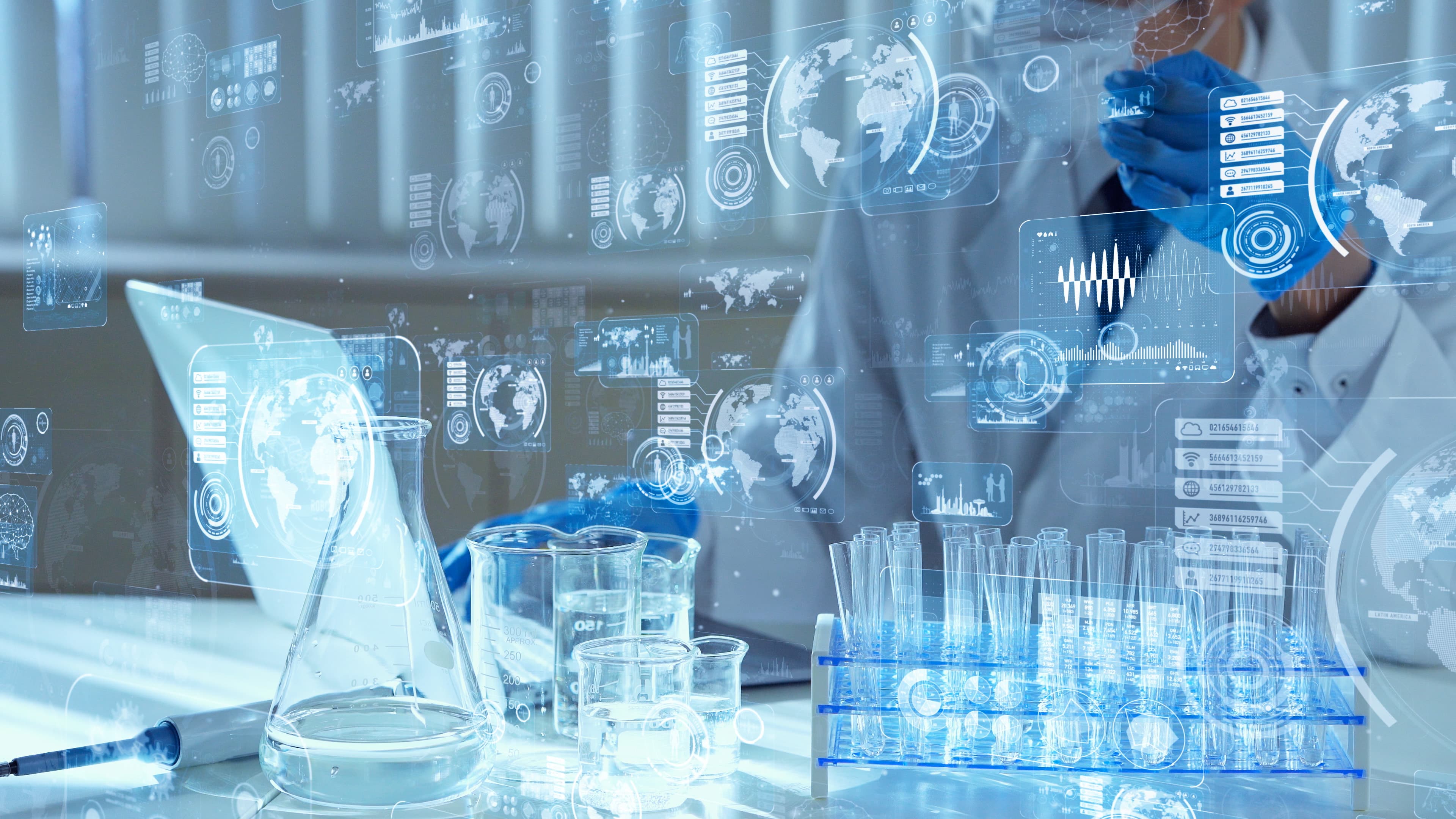AI and the Pharmaceutical Industry: How AI is Transforming Drug Discovery and Supporting Career Opportunities
life sciences

life sciences
Artificial intelligence (AI) is transforming the pharmaceutical landscape at a rapid speed. There are numerous positives to its implementation across the full drug development lifecycle; from research and development to sales and marketing, AI is providing pharmaceutical companies with the opportunity to improve their understanding of diseases, speed up drug discovery, and optimise the patient journey.
Despite this optimism though, some are understandably cautious of AI’s capabilities, with concerns as to the impact it will have on their careers, or the reliability of the outcome AI can create.
In this blog, we will explore some of the current and future applications of AI in the pharma industry. We will also look at some of the challenges posed by artificial intelligence and what opportunities lie for the pharmaceutical sector.
There are already many uses for AI within the pharmaceutical industry, with its implementation visible across the full drug lifecycle. From it’s use in networks and tools, to drug discovery and drug screening the industry has witnessed considerable changes due to artificial intelligence.

One area of the industry which has already adopted changes due to AI is within the Medical Information sector. Brunel recently spoke with Gamal Girgis, a Medical Information Team Lead at a leading global pharmaceutical company, who provided examples of the current applications of artificial intelligence within his field and discussed the potential it holds for the future.
With over 11 years of experience working within the pharmaceutical industry in Canada, predominantly in positions within the Medical Information, Pharmacovigilance and Sales sectors, Girgis has witnessed the industry change and develop over the years.
“We’ve already seen apps that translate medical documents using AI” states Girgis. These types of apps will be particularly useful in bilingual countries, he claims, using Canada as an example where documents are required in both English and French. “If you need a document translating to a local language, AI is there for that and can do it very well and very fast”.
So how do translation services work in conjunction with artificial intelligence? According to Weglot AI translation is “an automatic translation method that relies on complex machine learning algorithms”. By using natural language processing, machine learning of pharmaceutical terminology and neural networks, AI can create grammatically correct copy with a natural flow and clear structure.
.jpg%3Fmw%3D1080&w=3840&q=75)
However, not everyone is enthusiastic for the implementation of AI into the pharmaceutical industry.
“I see AI as both an opportunity and a threat at the same time,” states Girgis. “It’s an opportunity for us to use AI to allow us to focus on other important things. For example, if I can use an AI app to make translations for me, or to perform literature searches, create publications summary and review a document, then we’re saving a lot of time and energy, and I will have more time to focus on sharing insights with our internal stakeholders or work on other more complicated tasks.”
“However, there is the risk that AI is going to reduce the number of employees at some point if artificial intelligence learns to do a lot of the things which we, as humans, are currently doing.”
Whilst it is understandable why some fear they will lose their jobs to AI, it is anticipated that artificial intelligence will in fact work collaboratively with workers, as opposed to replacing them, specifically within the healthcare sector.
To ensure AI and employment opportunities work in harmony, workers need to show their capabilities to do something that AI cannot do. For example, using the human brain to carry out tasks that AI, even years from now, still will not be able to replicate. Employees need to shine by showing their qualities and their value to the business – this will be crucial over the next few years.
According to Forbes the emergence of AI will see a change to roles within the pharmaceutical industry with researchers and scientists able to achieve more in less time. With repetitive tasks, such as data entries and analysation given to AI, employees could find themselves with more time to focus on complex and difficult tasks.
For example, a combined effort between AI and face-to-face interactions will help pharmaceutical sales reps to build stronger connections with HCPs and provide them with better data. But to do this, sales reps need to be upskilled to take advantage of the multitude of digital tools available to them.
This will only occur if key decision-makers – who likely have no previous experience using AI – decide to upskill themselves and their teams, or whether they stick with current processes and risk being left behind.

Girgis also sees a bright future for the pharmaceutical industry working in collaboration with AI. “If we apply AI in research and development then we could see companies saving money on the development of new products.”
One such case study involved the use of AI to help diabetes patients manage their condition more effectively via an AI-developed program. Its success saw the program rolled out across many hospitals in the US, where it has the potential to save millions of dollars in costs.
So how will AI shape the future of the pharmaceutical industry and the development of new medicines? Forbes believes the sector will see artificial intelligence continue to be implemented in the following ways:
These predictions and additional capabilities will help medicines get to market faster. But there will still be a requirement for AI-created drugs to be deemed safe for humans, they must prove to have the desired effect on the disease, and it is critical they meet the rigorous standards to be approved for use.
Artificial intelligence is transforming the pharmaceutical industry and has already proved to have many benefits. Current applications of AI in pharma include within drug discovery, clinical trials, and medical information. Similarly, AI is playing an important role in the analysis of patterns and trends within ‘big health data’.
Yet the implementation of AI and machine learning in pharma is not without its challenges. There are calls for the quality of data used to be improved to ensure more accurate and timely results, whilst others have voiced concerns about the ethical implications of AI in healthcare. Regulatory bodies also need to adapt to changes within the industry due to AI.
However, due to large investments from the industry into artificial intelligence and successes already seen from its implementation, the future looks positive for pharma and AI, with benefits to be seen by both the companies working within the industry and the patients being served by it.